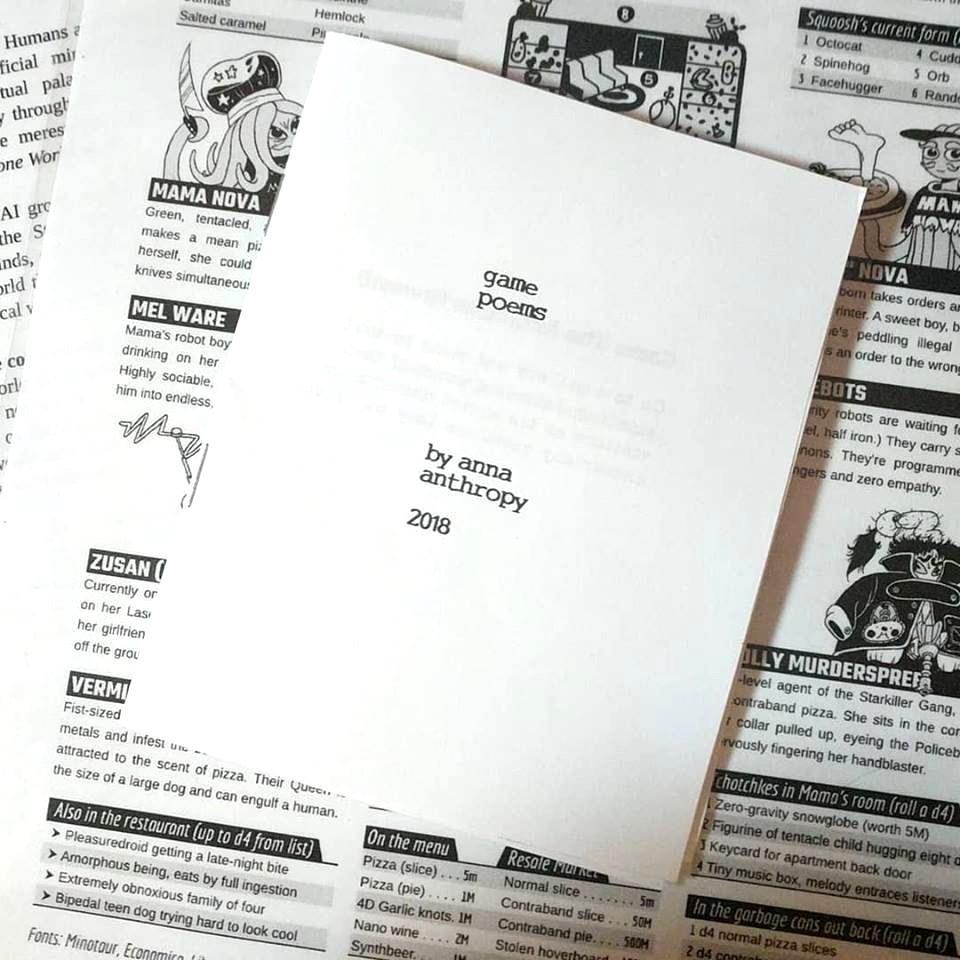I’m on a study project to improve my understanding of roleplaying games. To this end, I already have two reading projects, A Game Per Year and An Adventure Per Year. This is the third, with the goal of reading or playing 52 games made in the last few years. Originally I considered making this “A New RPG Per Week” and that’s where the number 52 comes from, even though a weekly schedule is probably not within my abilities.

Game Poems is a collection of poems composed of the type of instructional language often found in games, originally published on Twitter. The tone of the poems is a bit more spiky than in the other lyric game collections I’ve read so far. For example, the first is called The Artist is Present and goes as follows:
Go to a gallery and stand by a painting. Introduce yourself to visitors as the artist and offer to answer any questions they may have.
Are these game poems conceptual, meant to be contemplated as thought exercises, or are they meant to be followed literally and acted out? Should I go to an art gallery and really do this?
In the context of Nordic larp, there was a fashion for pervasive games in the 00’s where the idea was to mesh reality and designed game experiences together so that the border of what’s real and what isn’t would become blurred. Often these larps would be played out on town and it was possible for a bystander unwittingly to interact with a player who was in character.
The most extreme phase of making pervasive games has since receded but the culture is still there. I have organized urban larps which partially take place in public spaces.
Against this background, the instructions of this specific poem don’t sound so outlandish, even if purposefully hoaxing bystanders and involving them in the work under false pretenses is considered somewhat unethical. The quality that strikes out is that this is the entire purpose of the scenario suggested by the poem.
Another game poem is called Defenders of the Public Good. It goes like this:
Count how many cops line up in front of each business. Keep a leader board.
It’s described as a “game for protesters”, situating the act of play within a political protest where police are deployed to protect businesses from the protesters. As a poem it points to the role of the police in a civil disturbance and the meaning of the phrase “public good”: Private property.
It’s also an eminently playable game. You can do it at any demonstration, like a thought exercise about the role of the police. It doesn’t involve a layer of fiction at all, just points to a quality that’s present in reality and invites you to think about it.